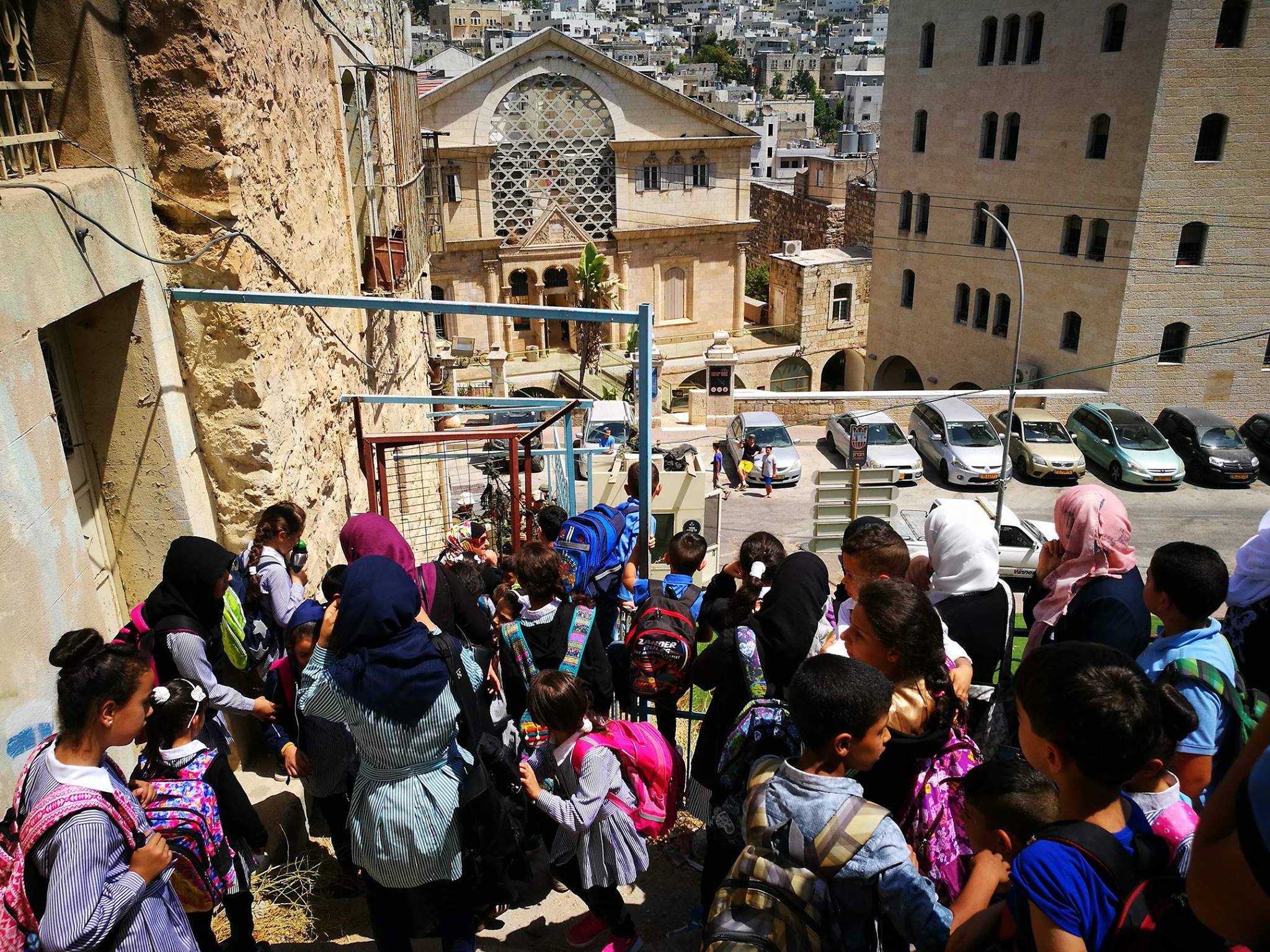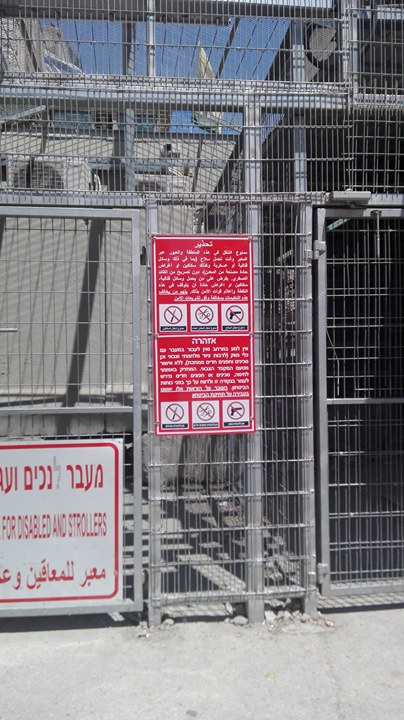Tag: Shuhada Street
-
Right to education severely impeded for Qurtuba school students
29th August 2017 | International Solidarity Movement, al-Khalil team | Hebron, occupied Palestine Israeli forces in occupied al-Khalil (Hebron) are severely restricting, for the second day in a row, the freedom of movement for Palestinian students and teachers at Qurtuba school. Whereas on Monday students and teachers were detained by Israeli forces for almost half…
-
Apartheid illustrated: Israeli soldier shoots another soldier in Hebron
6th July 2017 | International Solidarity Movement, al-Khalil team | Hebron, occupied Palestine On Tuesday, 4th July 2017, Israeli forces were conducting a ‘military training’ in a civilian Palestinian neighborhood near Gilbert checkpoint in Tel Rumeida in occupied al-Khalil (Hebron). The result of this ‘military training’ was a fatal shot by one Israeli soldier to…
-
Life imprisoned in a ‘closed military zone’: “Daily Life”?
26th June 2017 | International Solidarity Movement, al-Khalil team | Hebron, occupied Palestine Israeli forces at Shuhada checkpoint in occupied al-Khalil (Hebron) have put up yet another sign ‘instructing’ the Palestinian residents on their behavior at the checkpoint. The bright-red sign clearly with pictures prohibits any kind of supposedly ‘dangerous’ materials like guns, knives and…



